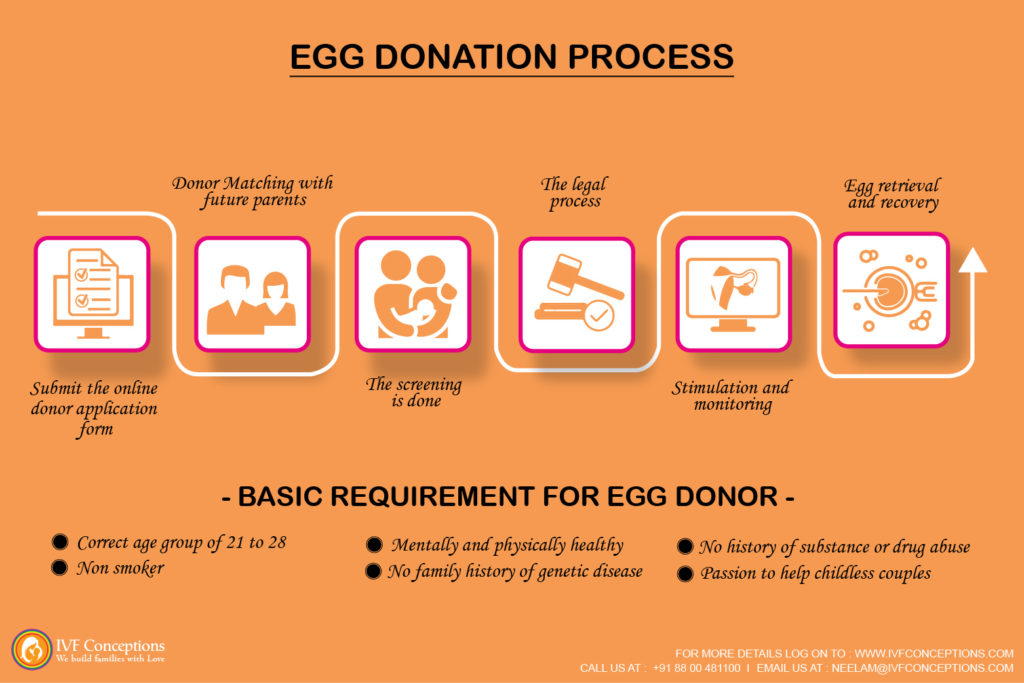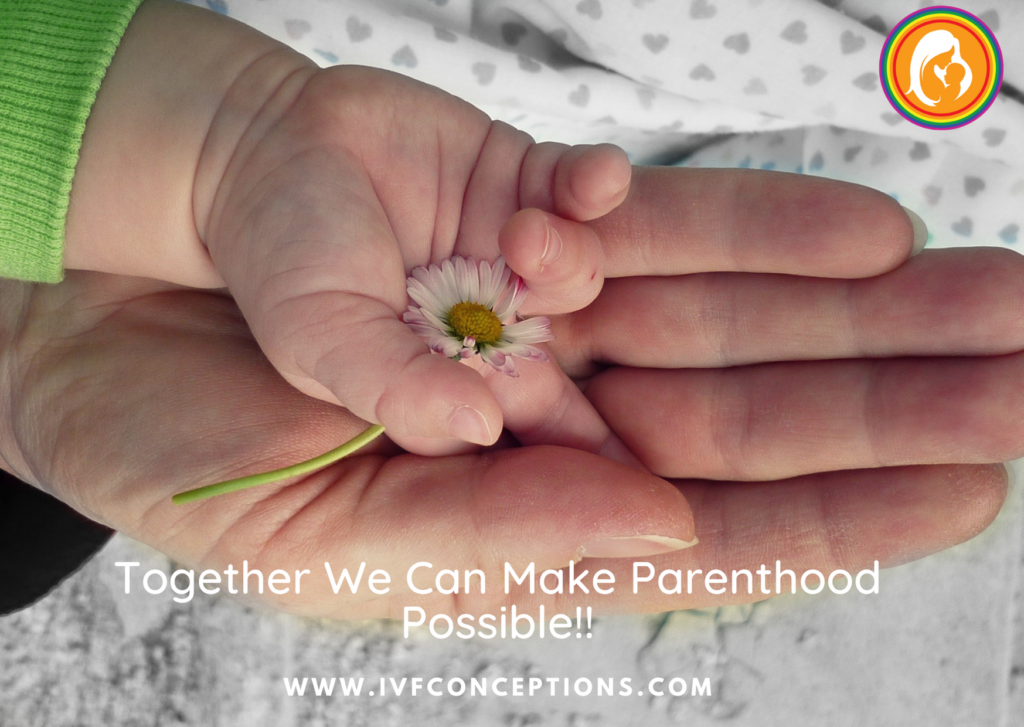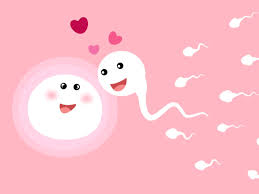Egg Donor FAQs: All Your Questions Answered

If you’re considering becoming an egg donor to help others fulfill their dreams of parenthood, you may have several questions about the process, requirements, and potential risks involved. Similarly, if you are an intended parent looking for an egg donor, you might have many questions related to egg donation. In this comprehensive guide, we will address the most frequently asked questions about egg donation, ensuring you have all the information you need.
There are many Assisted Reproductive Technologies (ART) available to help infertile patients to conceive, one of them is the egg donation process. Egg donation is part of the IVF process when instead of a female partner some other lady gives her eggs to facilitate the process of IVF. Egg donation is a process in which a woman donates her eggs to another woman to help her conceive a child.
But before that, we would like to introduce to you some of the basics of egg donation.
Who uses egg donation?
Egg donation can be used by women because of multiple reasons-
- Having the poor-quality of eggs or irregular periods
- Women with advanced age of more than 40 years
- To avoid the passing of genetic problems to the baby
- Those who are unable to produce eggs but want to use male sperm to have their own biological child.
Process of egg donations
There are three main stages of the egg donation process –
- The donor of the egg is injected with hormones to produce multiple eggs at a time. Naturally, women produce one egg each month and other eggs mature concurrently with the injections. When her eggs are mature, the egg picks up will be prepared by her fertility specialist.
- The eggs are then removed by placing a needle attached through the vaginal tissues to an ultrasound examination. The eggs then are softly sucked out of the ovaries. After extracting the eggs, an embryologist is responsible for their assessment.
- Fertilization is carried out in the lab and embryos are then moved into the uterus of the recipient.
More resources for egg donation FAQs:
Pros and cons of egg donations
What are egg donor requirements?
All you need to know about the egg donation process
Egg Donation FAQs
#1. Who can become an egg donor?
Egg donors are females who are willing to donate their eggs to a recipient between the ages of 21 and 34 years. The egg donor can be anonymous or known. The egg donor agencies generally offer anonymous donors, but in some cases, if the egg donor is open to sharing the details of her with the parents, it is possible to meet the egg donor. Some couples, however, find donors by themselves within friends or family circles. Recipients should be careful in recruiting donors themselves and need to do thorough screening and should consider seeking legal advice. Identified donors are normally personal friends or relatives of the recipient. They are often known as direct donors.
#2. What medicines are administered to egg donors?
Various medicines may be administered but specific medicines may vary. Some of the generally administered medicines are as follows –
- Lupron prevents ovulation of a lady and also prevents her eggs from growing natural follicles – the “bag of nutrients” that encircles the cell itself. It does that by preventing certain natural hormones from occurring in the body of the woman. It is a temporary barrier.
- FSH occurs normally in the body of a woman, but it is required in a higher dose in an egg donor. To stimulate follicle growth in a more effective and regulated manner at the right time a pre-defined dose is given.
- Like FSH, hCG takes place in a woman’s body naturally. It is responsible for the regulation of the metabolic process of an egg. This is used to help females’ eggs enter a state of maturity in controlled quantities as the third drug in the egg donor process and as part of the cycle triggers ovulation.
#3. How are egg donors evaluated?
The egg donor evaluation is similar to those of IVF couples. This should include a full health history from both partners, including blood type and Rh factor, and sexually transmitted diseases. A mental health professional will counsel the couple on the importance of using donor eggs.
A pelvic exam and a uterus examination will be carried out on the egg donor. Besides this, AMH (Anti-Mullerian Hormone) and ovary scan on day 2 give an accurate assessment of the fertility of the egg donor.
#4. How much is the egg donor compensated?
Egg donors receive payment on average between $7,000 and $15,000. The exact cost of donating eggs depends on several situations, including location, history of egg donations and fertility and demand of the type of egg donor, and much more. The parents need to pay the fee for egg donor compensation, legal documents, and the medical process of the egg donor. Medical tests as well as an insurance scheme for the donor, are also to be borne by the intended parents.
#5. Why are egg donors compensated?
Egg donating requires considerable commitment and considerable personal availability and inconvenience. On top of that, it is time-consuming, and lots of effort is needed on the egg donor’s part to follow the egg donor protocol. An egg donor undertakes extensive criteria and background studies as well as medical clearance before being accepted as an egg donor. Therefore it is a demanding and medically invasive process, that needs to be compensated.
More resorucs for egg doantion:
Egg donation process step-by-step
Egg donation requirements and qualifications
#6. What is the success rate of egg donation?
There are several reasons for the success of the egg donation IVF process but it is not seen as being related to the recipient’s age. For all egg donor programs, success rates compiled by the Disease Control Centres for 2010 show an average embryo transfer birth rate of 55 percent.
#7. What are the risks and complications associated with egg donation?
Most egg donors do not have blood tests and hormone injection issues. Some may experience uncomfortable, red, or blurry injection sites. Side effects may involve breast sensitivity, moodiness, fluid retention, and discomfort around the ovaries. Egg donors may also have temporary weight gains by their next menstrual cycle due to bloating.
When the egg donor over-stimulates it may be at risk for ovarian hyperstimulation syndrome (OHSS), which usually happens in less than 5 percent of egg donors and is the worse side effect of egg donation.
#8. How long does the egg donation process take?
The egg donation process typically spans several weeks, but the exact duration can vary from individual to individual. It begins with a thorough screening process to assess your eligibility and suitability as a donor.
Once approved, you will be matched with a recipient, and the synchronization of your menstrual cycle with the recipient’s cycle will be initiated. This is followed by hormone injections to stimulate egg production. When the eggs are ready, they will be retrieved through a minimally invasive procedure. Overall, the process can take around 4 to 6 weeks from start to finish.
#9. Do I have any responsibility to any children who may be born?
As an egg donor, you have no legal or parental responsibility for any children born as a result of the egg donation process. The intended parents become the legal parents of the child, and you have no obligations or rights to the child.
#10. Can I donate my eggs more than once?
Yes, in most cases, you can donate your eggs multiple times. Egg donation typically involves retrieving a small number of eggs during each cycle, leaving the majority of your egg reserve untouched.
However, the number of times you can donate may depend on your overall health and individual circumstances. We conduct thorough medical screenings to ensure your well-being throughout the process.
#11. Is there medical screening involved?
Yes, medical screening is an essential part of the egg donation process. Our medical team will conduct a comprehensive evaluation, including physical examinations, blood tests, genetic screenings, and ultrasounds, to assess your overall health and reproductive potential. This ensures that you are a suitable candidate for egg donation and that the procedure is safe for both you and the recipient.
#12. Are there any short-term risks?
The egg donation process is generally safe, but like any medical procedure, it carries some risks. The most common short-term risks include mild discomfort, bloating, and cramping following the egg retrieval procedure.
However, our experienced medical team takes every precaution to minimize these risks and ensure your well-being throughout the process.
#13. Where is the egg donation process performed?
At [Your Clinic/Agency Name], the egg donation process takes place in a state-of-the-art fertility clinic. Our clinic is equipped with cutting-edge technology and staffed by highly skilled professionals who specialize in assisted reproductive techniques. You can rest assured that you will receive the highest standard of care throughout your journey as an egg donor.
#14. Is my egg donation anonymous?
Yes, we ensure complete donor confidentiality. Both the donor and the recipient sign a legal consent form guaranteeing the anonymity of the egg donation. This means that the recipient will not have access to any identifying information about you, and you will also not be informed about the recipient’s identity.
 Conclusion for Egg Donation FAQs
Conclusion for Egg Donation FAQs
Becoming an egg donor is a selfless and rewarding decision that can profoundly impact the lives of others.
Therefore, being an egg donor or before hiring an egg donor, both parties need to consider all the pros and cons of egg donation. They need to discuss the medical and legal aspects of the process.
The egg donor agencies have a huge database of egg donors, who are pre-screened and ready to start the process. If you wish, you can also opt for traveling egg donors, as needed sometimes.
But please note that the cost of traveling egg donors is much higher as intended parents need to pay their traveling and accommodation fees along with other usual fees. Usually taking egg donors from the clinic is more affordable.
If you’d like to learn more about IVF, Egg Donation, or surrogacy services globally, check out the rest of our website: IVF Conceptions. We offer legally secure and affordable surrogacy consulting services for FREE.
Some more FAQs for Egg Donation:
1. What is egg donation?
Egg donation is a process in which a woman, known as the egg donor, provides her eggs to be used by another individual or couple who are unable to conceive naturally. The donated eggs are typically used in assisted reproductive techniques such as in vitro fertilization (IVF) to help the intended parents achieve pregnancy and start a family.
2. Who can become an egg donor?
The criteria for becoming an egg donor may vary from one fertility clinic to another, but generally, healthy women between the ages of 21 and 32 are eligible. It is essential to be in good physical and mental health, have regular menstrual cycles, and be free from certain genetic and medical conditions. Each potential donor will undergo a comprehensive screening process to ensure suitability for egg donation.
3. How are egg donors screened?
Egg donors undergo a thorough medical and psychological evaluation as part of the screening process. This evaluation includes physical examinations, blood tests, genetic screenings, and discussions about the donor’s medical history and lifestyle. The purpose of these screenings is to ensure that the donor is in good health and has a low risk of passing on hereditary conditions to any potential offspring.
4. Is egg donation safe?
Yes, egg donation is generally considered safe for healthy women who meet the necessary eligibility criteria. However, like any medical procedure, there are potential risks and side effects associated with the process, such as discomfort, bloating, or minimal bleeding after the egg retrieval procedure. The medical team closely monitors the donor throughout the process to minimize any potential risks.
5. What is the egg donation process like?
The egg donation process involves several stages. After passing the initial screening, the donor will receive hormonal injections to stimulate the ovaries to produce multiple eggs. Regular monitoring via ultrasounds and blood tests is conducted to track egg development. When the eggs are mature, they are retrieved through a minimally invasive procedure performed under anesthesia. The retrieved eggs are then fertilized with the recipient’s partner’s sperm or with donor sperm in the laboratory.
6. Are there any side effects or risks for egg donors?
While the majority of egg donors experience no serious complications, some may encounter minor side effects, such as bloating, cramping, or mild discomfort after the egg retrieval procedure. In rare cases, ovarian hyperstimulation syndrome (OHSS) may occur, but the risk is minimal with careful monitoring. The medical team at the fertility clinic takes every precaution to ensure the donor’s safety throughout the process.
7. Can egg donors choose their recipients?
In most cases, egg donors do not have the option to choose their recipients. The matching process is typically handled by the fertility clinic, and the identities of both the donor and the recipient remain anonymous to each other. However, some clinics may offer an Open ID egg donation program where the donor agrees to allow the recipient’s child to contact them when they reach adulthood.
8. What are the legal aspects of egg donation?
Egg donation involves legal agreements between the donor, the recipient, and the fertility clinic. The legal contract outlines the donor’s relinquishment of any parental rights or responsibilities for any children born from the donated eggs. Additionally, the contract ensures that the recipient becomes the legal parent of the resulting child.
9. How much compensation do egg donors receive?
The compensation for egg donation varies depending on the clinic, location, and individual circumstances. In some regions, donors may receive a flat fee, while in others, they may be compensated based on the number of eggs retrieved. The amount typically covers the donor’s time, effort, and expenses related to the donation process.
10. Can egg donors remain anonymous?
Yes, egg donors can remain anonymous if they wish to do so. Donor confidentiality is protected by a legal consent form signed by both the donor and the recipient. This means that the recipient will not have access to any identifying information about the donor, and the donor will not be informed about the recipient’s identity.
11. What are the success rates of egg donation?
The success rates of egg donation vary depending on several factors, including the age and health of the egg donor, the recipient’s age, and the quality of the recipient’s uterus. Generally, the success rates are higher with younger and healthier donors. Fertility clinics often provide statistics on their success rates to help potential recipients make informed decisions.
12. Are there any age restrictions for egg donors?
Most fertility clinics set an upper age limit for egg donors, usually around 32 to 35 years old. This is because the quality and quantity of eggs decline with age, and younger donors tend to have better pregnancy success rates. However, each clinic may have its specific guidelines regarding the age of egg donors.
13. How long does the egg donation process take?
The egg donation process typically takes around 4 to 6 weeks from the initial screening to the egg retrieval procedure. However, the exact duration can vary based on individual factors, such as the donor’s response to hormone stimulation and the scheduling of appointments.
14. Can egg donation affect future fertility?
No, donating eggs does not negatively impact the donor’s future fertility. During each menstrual cycle, only a small number of eggs are used, and the rest remain unaffected. The hormonal stimulation used during the egg donation process does not deplete the donor’s overall egg reserve.
15. What are the emotional considerations for egg donors?
Egg donation is a significant and altruistic decision that can have emotional implications for the donor. It is essential for donors to be mentally prepared for the process and to consider the potential emotional impact of their decision. Many clinics offer counseling and support services to donors to help them navigate any emotional challenges.
16. Are there any medical tests required for egg donation?
Yes, medical testing is a crucial part of the egg donation process. The donor will undergo a series of physical and laboratory assessments, including blood tests, genetic screenings, and ultrasounds. These tests ensure that the donor is in good health and has no medical conditions that could affect the success of the donation process.
17. Can same-sex couples or single individuals use donor eggs?
Yes, same-sex couples and single individuals can use donor eggs as part of assisted reproductive techniques like IVF. Donor eggs offer a viable option for individuals and couples who may not be able to use their own eggs for conception.
18. Are frozen donor eggs as effective as fresh ones?
Yes, frozen donor eggs are as effective as fresh ones when it comes to achieving pregnancy through IVF. Advances in egg-freezing technology have made it possible to preserve and use frozen donor eggs with excellent success rates.
19. What should recipients consider when choosing an egg donor?
Recipients should consider several factors when choosing an egg donor. These may include the donor’s physical characteristics, medical history, educational background, and other personal attributes. Some recipients may also have specific preferences, such as a donor with similar ethnic or cultural backgrounds.


 Conclusion for Egg Donation FAQs
Conclusion for Egg Donation FAQs
